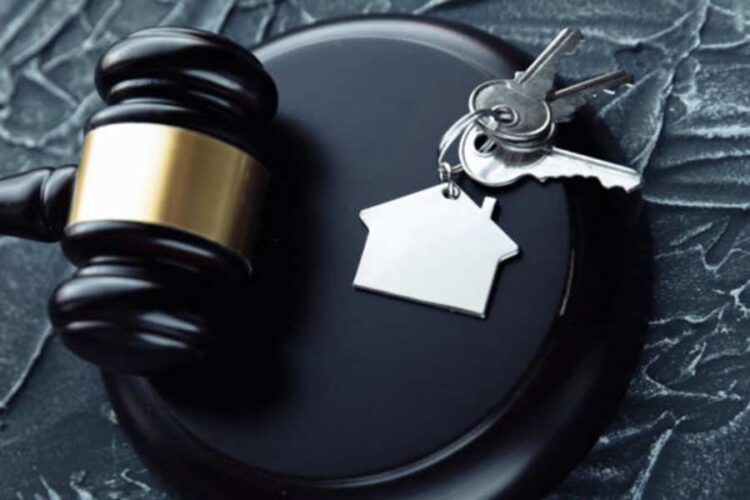Secure your right to basic living by suing landlords that fail to keep their rental property in optimal condition. If you’re a tenant, it’s essential to know that living on someone else’s property doesn’t mean you shouldn’t expect to live in a safe and conducive environment. Landlord-tenant laws guarantee basic living conditions, such as functional plumbing, heating, and a pest-free environment. As a result, if you’re dealing with serious structural problems in your apartment that compromise your comfort and health or could even lead to injury, you can take legal action as a last resort. Read this guide as we discuss how to deal with habitability issues.
What is Habitability in Property Management?
Before diving into what you can do when your landlord violates habitability laws, let’s clarify what it is. Keeping it simple, it refers to the minimum standard property owners must provide as living conditions for their tenants. In other words, it includes essential services like heating, plumbing, electricity, and structural integrity.
For context, if the pipes in your basement are leaking, causing water damage, and leading to mold, that counts as a breach of the implied warranty of habitability. Working with a reputable property manager in Northern Virginia can assist in prioritizing tenant safety and well-being during their lease. On the other hand, if your landlord refuses to upgrade a tired but functional sink, that’s just refusing a cosmetic change and is still within their rights.
Steps to Take Before Taking Legal Action
Notifying your Landlord
Now that you understand the difference between legitimate habitability issues and simply refusing a cosmetic upgrade, let’s look at what you can do when your landlord is guilty of the former. For new renters, ensure to go through the usual process that includes notifying your landlord about the problem, preferably in writing. Yes, property owners ought to perform routine checks to ensure the house is always in order. However, you’re far more present in the rental, and early signs of a problem can escape some checks. It would be in both parties’ best interest if you alert your landlord when the heating or electricity is faulty.
Document Everything
Next, document everything. Take time and date-stamped photos and videos of the problem for record purposes. If you want to avoid back-and-forth or spur your landlord to take action, attach media to your emails and text messages so they can see the severity. It would be a good idea to save their responses to your complaint as well. Tenants can go through small claims court if they want to present their arguments in a legal way, and having evidence will make your case a lot easier.
Check Local Laws
Know your rights when it comes to habitability by checking local laws. While most states use roughly the same standard, habitability laws can still vary slightly from one location to the next. Thus, if you move to a state with more or fewer rights for tenants, you’d be at a disadvantage because you wouldn’t know what you’re entitled to or what legal options you have. In contrast, a good understanding of the local laws can equip you with the necessary knowledge to secure a more conducive apartment.
Potential Legal Actions Tenants Can Do
Withholding Rent
If your landlord doesn’t step up and fix habitability issues, in some states, tenants are allowed to legally withhold rent. Again, this option is dependent on local laws, so you have to ensure you don’t get hit with a lawsuit either. Most states that allow you to withhold rent when a property owner refuses to fix the heating or get rid of pests still require tenants to hold the money in escrow. This step demonstrates your willingness to pay your rent in exchange for optimal housing rather than trying to wiggle out of your responsibilities. In most cases, the court will also ask for proof that you informed your landlord about the problem and gave them sufficient time to fix it before withholding rent.
Repair and Deduct from Rent
Take the extra step and fix the issue yourself, but deduct the cost from your rent. That’s right; in some states, tenants can legally use part of their rent money to fix a problem if the landlord is unresponsive and doesn’t attend to it promptly. After all, that’s what they’re meant to use the rent money and security deposit for anyway. Besides, your deductions can even extend to medical bills from health hazards or temporary accommodation expenses during the home’s inhabitable period. However, you’ll need strong evidence to support your claims and receipts to back up your deductions.
File Small Claims Lawsuit
Gather your evidence and take your landlord to a small claims court. If you’d like compensation for repair costs, medical bills, or the emotional distress of living in less-than-standard accommodations, you can sue for damages. This option is especially good for tenants that live in states where the previous two options aren’t possible. Besides, with enough written and photographic evidence to support your case, you can win.
Importance of Understanding Local Housing Laws
1. Ensure Landlord Compliance
Keep your landlords on their toes by reminding them you know your rights and won’t settle for anything less. In other words, your understanding of local housing laws can support your arguments with property owners over necessary repairs and help you avoid going to court.
2. Improve Legal Outcomes
With tenants having a strong knowledge of the law, they can prepare their arguments and collect necessary evidence to win their cases. If you do decide to take your landlord to court, knowing local housing laws can help you strengthen your case. For example, if the state requires you to put withheld rent in escrow, failing to do so can invalidate your claims and even lead to a countersuit.
Conclusion
Enjoy living in your rental without the burden of habitability issues that affect your quality of life. Landlords are legally required to make repairs such as plumbing, electrical, heating, or structural systems. If you experienced being ignored or neglected by your landlord, this is a clear violation of the implied warranty of habitability. Depending on where you live, it may be appropriate to withhold rent, or pay out of pocket to have the issue fixed and deduct it from what you pay your landlord. Understanding local housing law will also help you get a better legal outcome if you decide to sue.










